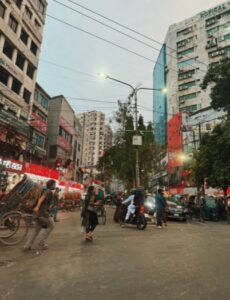Working in public health on an international platform is no joke. My first two weeks at Ipas Bangladesh have already given me a wealth of perspective. The Bengali health system is complex, arguably more so than that of the U.S. (how could that even be possible?), and cultural stigma creates significant barriers for women and adolescents seeking proper education and access to MR (menstrual regulation/abortion) services, PAC (post-abortion care), and family planning (FP) services. With a staggering population of over 170 million people, a third of whom live in urban areas, Bangladesh is rapidly urbanizing. Yet, despite this shift, there is a noticeable lack of prioritization for urban health needs.
General practitioners (GPs) are tasked with providing MR, PAC, and FP education and services, but they are overwhelmed, under-resourced, and oftentimes not properly trained in these services. This unmet need has forced NGOs to step in and shoulder much of the responsibility in urban and humanitarian settings. Ipas Bangladesh is at the forefront, tirelessly forming collaborations and partnerships with local NGOs and government entities to champion sexual and reproductive health rights (SRHR), particularly for women and adolescents in urban slums and humanitarian settings.
I had the privilege of visiting and observing a Comprehensive Reproductive Health Care Center (CRHCC) in Dhaka. One GP and a team of dedicated mid-level providers—nurses, family welfare visitors (FWVs), and paramedics—manage all MR, PAC, and FP services and counseling. Ipas is instrumental in training these mid-level providers, ensuring they can deliver essential care with confidence. Without these clinics, many women do not have access to these vital services. I also witnessed an Ipas training session involving 34 paramedics for MR, PAC, and FP services. These trainings are crucial for enhancing reproductive care in Bangladesh.
Being part of Ipas Bangladesh has given me a firsthand look at public health programs and initiatives in action within a “developing” country. However, I feel “developing” is a misnomer; it’s not the people but the systems that need development. The resilience of the Bangladeshi people is inspiring. Accessibility to MR, PAC, and FP is limited, GPs and mid-level providers are stretched thin, and sexual and reproductive health (SRH) remains a taboo topic. Yet, amidst these challenges, the work being done is nothing short of extraordinary, and I am ecstatic to play a small role in understanding and promoting this ongoing work.
Haylee

